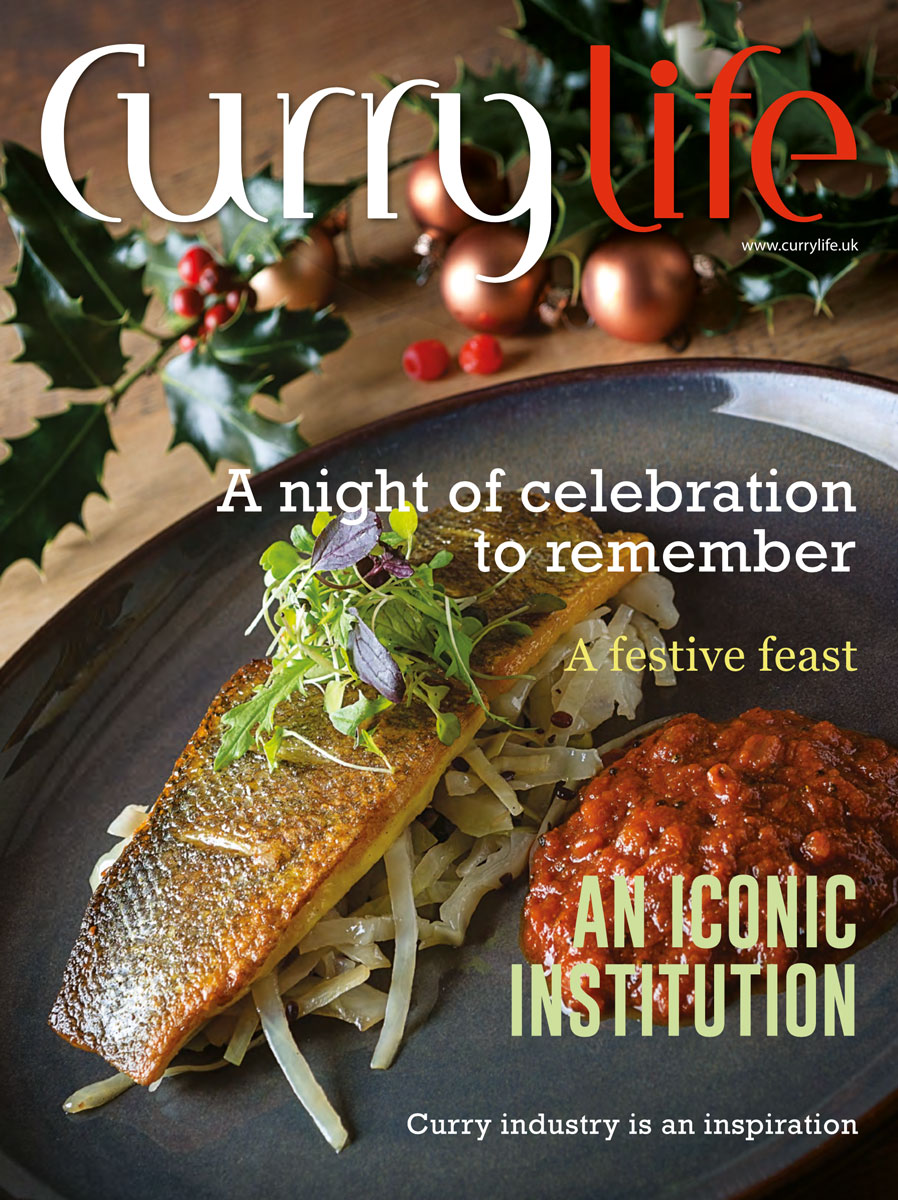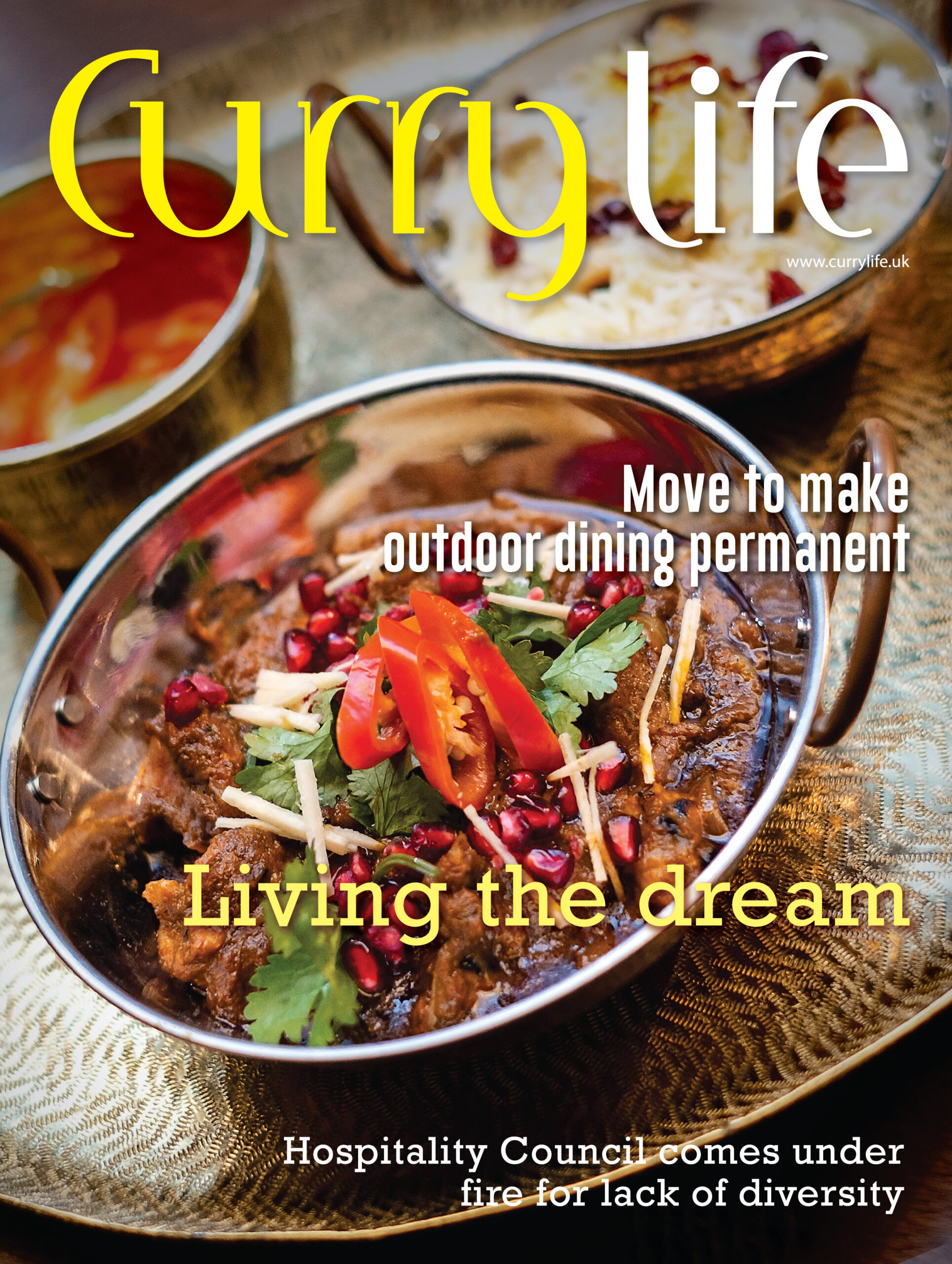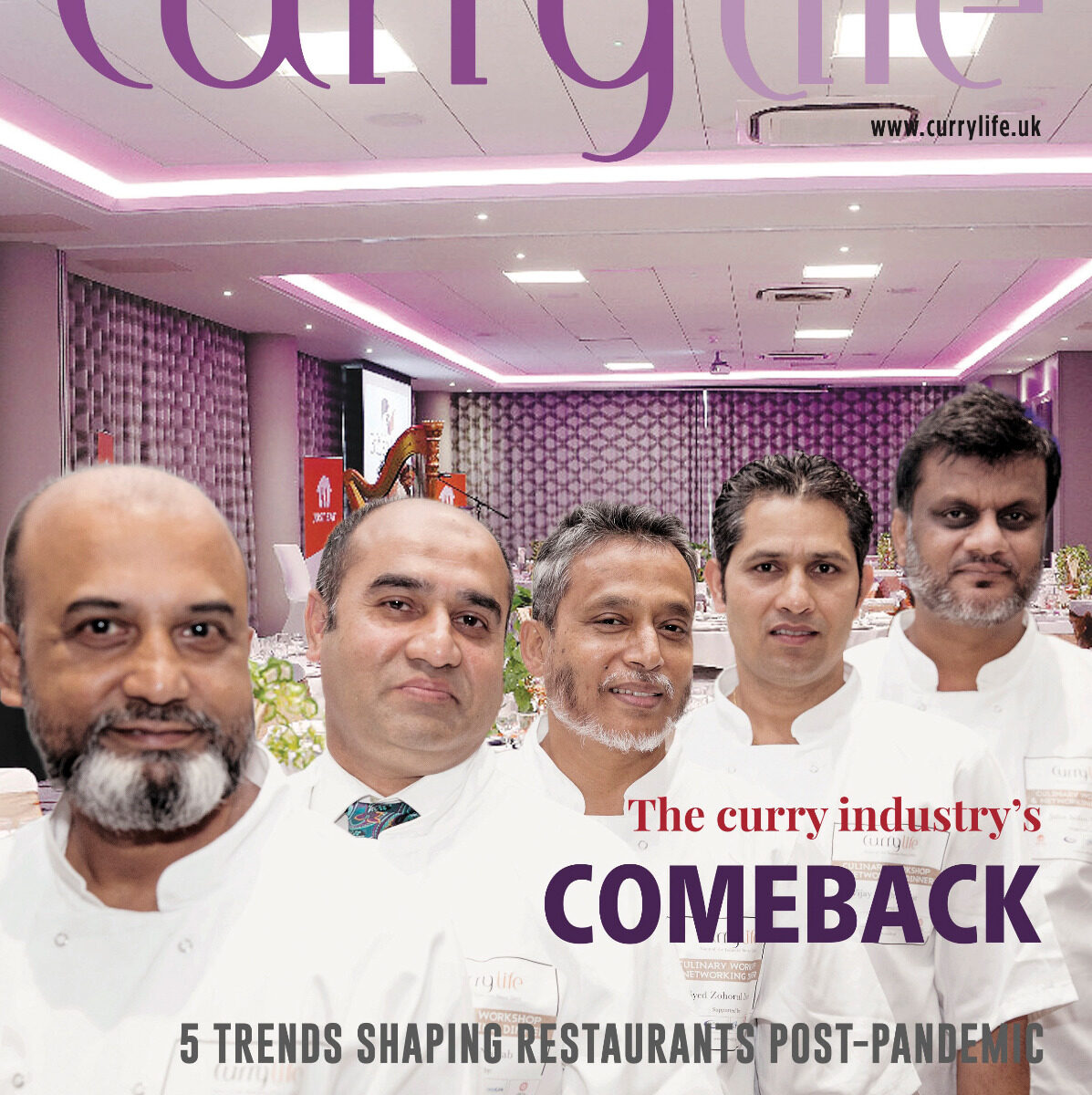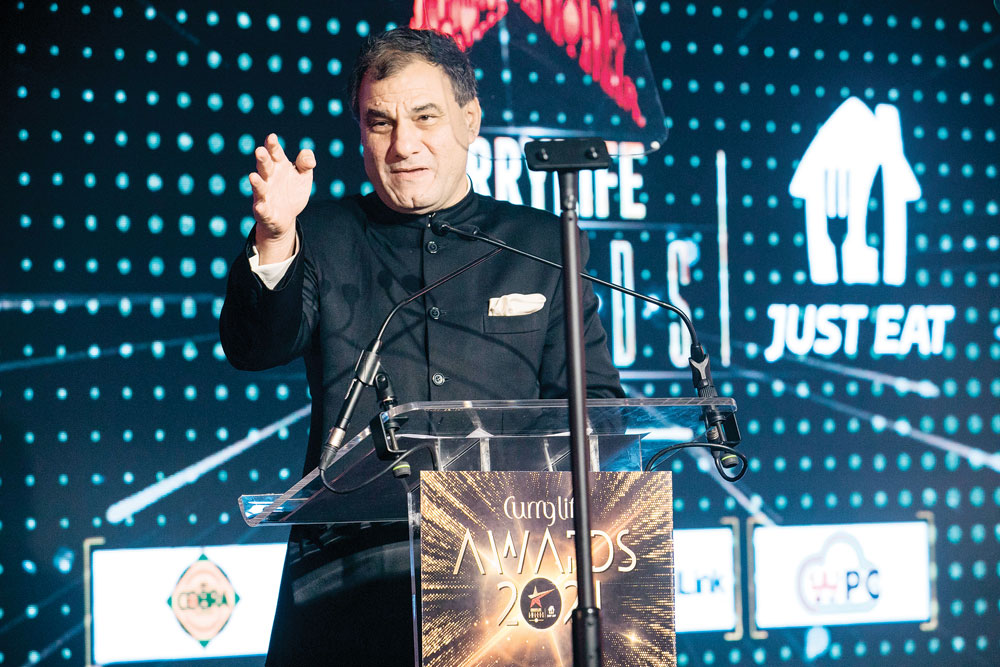
Curry industry is an inspiration says Cobra’s Karan Bilimoria
Karan Bilimoria, the founder of Cobra Beer and president of the CBI, says the curry industry has been ‘an inspiration’ in times of adversity, and that he is grateful for the support his business has received from the sector.
Bilimoria also recently attended the Curry Life Awards 2021, held in October. He said:
“I was pinching myself at the Awards, thinking, was this event really happening after the nightmare we have been through for over 18 months? [Are] 750 members of our industry from all around the UK in-person together? There was such a wonderful atmosphere, and it also highlighted the huge sacrifice made and the amazing compassion shown by our restaurants to their local communities, including the NHS. It was of course also a time to remember the tragic loss of loved ones that many of us have experienced.”
Bilimoria also commented how, as President of the CBI, he was privileged to chair the Business 7 (B7) summit in May prior to the UK hosting the G7 in June.
“At the B7, Dr Gita Gopinath, chief economist of the IMF, predicted that the UK would bounce back quickly and strongly from the pandemic because of the £400 billion given by the government to support businesses and our economy, as well as our world-leading vaccination programme,” he said. “In reality we have seen since this summer an energy crisis, fuel crisis, supply chain challenges, labour shortages and the pingdemic. Moreover our tax burden in this country is now at its highest level in seven decades. Inflation has already hit 4.2% and there is the prospect of rising interest rates from an all-time low. The recovery is fragile.”
However, Bilimoria acknowledged that we now are seeing demand coming back. “I believe that we are beating Covid with our continuing strong vaccination programme including boosters, the free availability of lateral flow tests with regular testing proving conclusively very effective,” he said “ The recent success of Pfizer’s anti-viral treatment, tablets for Covid where the trials showed a reduction for hospitalisations and deaths by 89% – this is a game changer.”
Bilimoria said that as long as the hospitality industry continues to show the spirit of resilience and adaptation and in particular continues to be innovative, it will succeed as an industry.
“At Cobra our innovations of King Cobra, our beer double fermented like champagne, produced in Belgium, and our Malabar Blonde IPA are examples of how one can continually innovate successfully. I am so grateful for the support we have received from the curry industry particularly in times of acute adversity – you are an inspiration to the whole country.”
Read more
Tripadvisor site: almost one million fake reviews in 2020
Close to one million reviews submitted to Tripadvisor’s site in the last year were fake, according to the travel platform’s 2021 Review Transparency Report.
The report, published at the end of October, analyzed a full year of data on reviews submitted by the global travel community. In 2020, travellers submitted more than 26 million reviews, of which more than 12 million were for restaurants, more than eight million for hotels and more than four million for experiences. Tripadvisor rejected or removed over two million of these reviews, representing 8.6% of all submissions, that did not comply with the platform’s community standards. In total, 3.6% of all review submissions last year were identified as fake, with the majority being rejected before they were posted to the Tripadvisor site.
There are a number of reasons why Tripadvisor rejects or removes reviews, ranging from community standards violations, such as the use of profanity, to fake review activity.
Becky Foley, head of Trust and Safety at Tripadvisor, said: “Knowing that you can rely on trusted guidance from travelers who have been there before has never been more important. As we continue the work to earn the trust travelers place in our business, we take the enforcement of our community standards incredibly seriously as we use the best in technology and human moderation practices to fight fraud. Today’s report demonstrates how effective our team, tactics and technology are at maintaining those standards.”
This is Tripadvisor’s second Review Transparency Report, with the previous one released in 2019.
Read more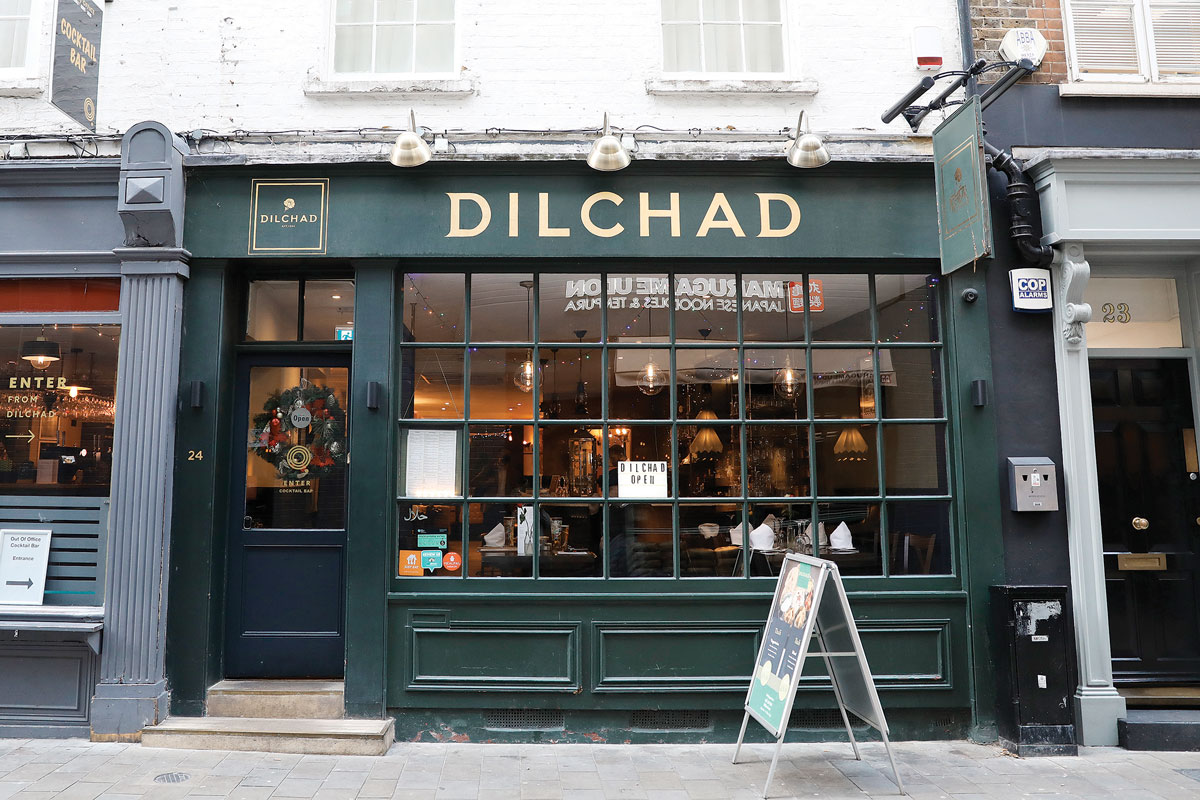
AN ICONIC INSTITUTION
From political activism in the 1960s to crypto currency in the 2020s, Dilchad has provided an inspiring place to both meet and eat.
It was in the 1960s when London made its mark as a leading global financial centre. It was around this time – in 1962 to be precise, that Dilchad first opened its doors, just a stone’s throw away from Liverpool Street Station. Founded by the Choudhury family, the business is still very much a family affair, but its food and its diners have changed considerably over the last six decades.
From its inception, the restaurant was popular with workers in the financial district but it also thrived as a hub for political gatherings. The UK branch of the Awami League, the political party which led the movement for Bangladesh’s independence, established its headquarters at the restaurant in 1970. Abdul Matlib Choudhury, the founder of Dilchad Restaurant, was not only a supporter of the Awami League, but also a leader of the first generation Bangladeshi community in the UK.
Today, ties between the restaurant and the politics of Bangladesh are just as strong. Abdul had five sons, Matiur Rahman Choudhury, Ataur Rahman Choudhury, Azizur Rahman Choudhury, Shafiqur Rahman Choudhury and Hamidur Rahman Choudhury, all of whom have worked at the restaurant at different stages since its opening. Shafiqur now spends most of his time in Bangladesh and was elected as the first British Bangladeshi MP in Bangladesh, in 2009. He is currently an influential politician and acting president of the ruling Awami League’s Sylhet region. Shafiqur was also once a community activist, and a well- known face in the community as well as a former leader of several organisations in the UK, including the Bangladesh Welfare Association. Other members of the Choudhury family live in the UK and regularly visit those in London .
“My father started Dilchad Restaurant in 1962 and also had ties to the Bangladesh Caterers Association in the UK, as well as being a community leader,” Shafiqursays.“This restaurant was not only a place for business lunches, it was for the community too, with many political meetings held here, particularly during the 1969 uprising in East Pakistan”.
Dilchad also served as a meeting place during the movement for independence in Bangladesh, no doubt with many heated conversations taking place and important decisions made, in a venue nearly 5,000 miles away from where the action took place. The father of the nation and founder of Bangladesh, Bangabandhu Sheikh Mujibur Rahman, visited Dilchad while his daughter, Sheikh Hasina, the current prime minister of Bangladesh, has also been to the restaurant many times when she was the leader of the opposition.

“It has changed a lot since we first opened,” reflects Hamidur, the youngest son of Abdul, who currently runs Dilchad alongside Moshiur Rahman Choudhury, the third generation of the Choudhury family. “There used to be very little competition but nowadays you can see so many more Indian restaurants in the area. “Most of the customers were business people during the day and the local community in the evening. It was a place to come for friendship and good food. But gradually over the years, the business clientele has changed – many offices relocated to Canary Wharf in the 1990s, then we had the recessions in the early 2000s and 2010 and the pandemic in the last year, with many people now working from home.”
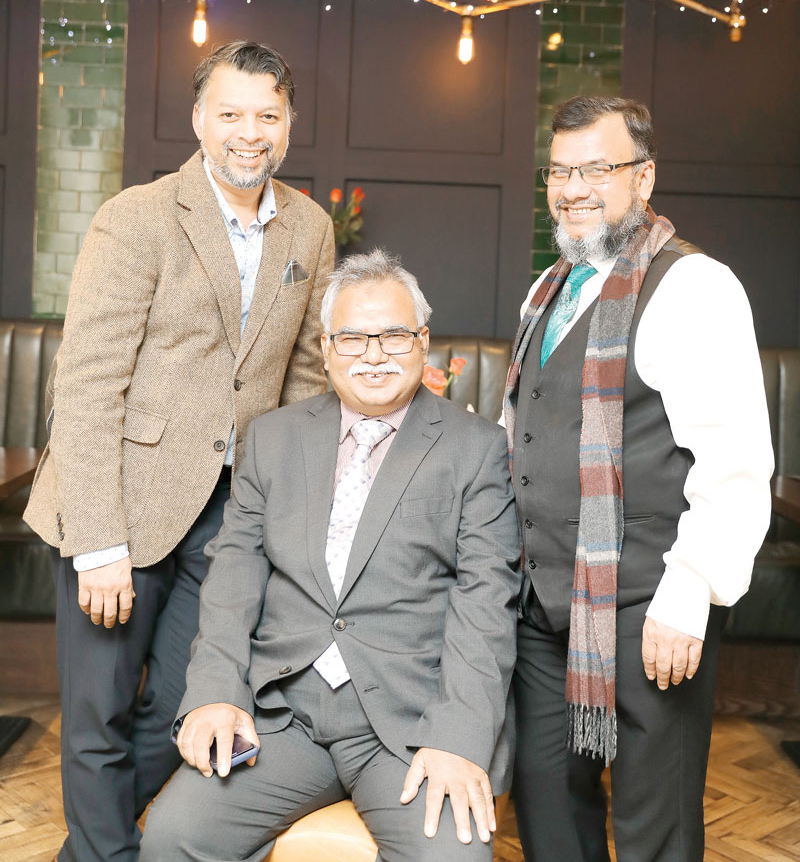
A changing scene
The restaurant has also become smaller – it used to seat around 170 in total but now offers 90 covers. Moshiur started working there back in 1994, although between then and now, he spent around 10 years away from the restaurant industry working in the commercial property sector. Moshiur acknowledges that it’s rare for someone of his generation to want to join the family restaurant business but having visited Dilchad regularly when he was a child, he is keen to keep the tradition and the memories going. For him, the biggest change over the last quarter of a century has been with diners.
“We used to get mainly men at that time, those working in nearby offices – now we have a mix of men and women and a crowd that is younger,” he says, referencing the opening of the nearby Chapter, a building providing accommodation for students, as one driver for this. “The demographic is a lot more diverse – with people from Asia, India, Pakistan and Bangladesh, it’s a different vibe. We still get many businesses dining with us but it’s moved away from the traditional finance and insurance backgrounds you would expect – our diners work at start-ups, IT and crypto currency businesses.”
In keeping with the tradition of being a meeting place for seismic events and topical subjects, The Crypto Curry Club, a series of networking lunches for blockchain and cryptocurrency experts, held several events at the restaurant this year. Founded by Erica Stanford, the aim of the Club is to share insights and ideas about the crypto currency space, while enjoying Indian cuisine. Fintech Starling Bank has also held events at Dilchad.
This new demographic also has different tastes, preferring lighter, smaller dishes. Dilchad has looked to reduce its menu in recent years, but some of its loyal, older customers prefer the traditional curries. Keeping everyone happy is a delicate balancing act, as Moshiur explains.
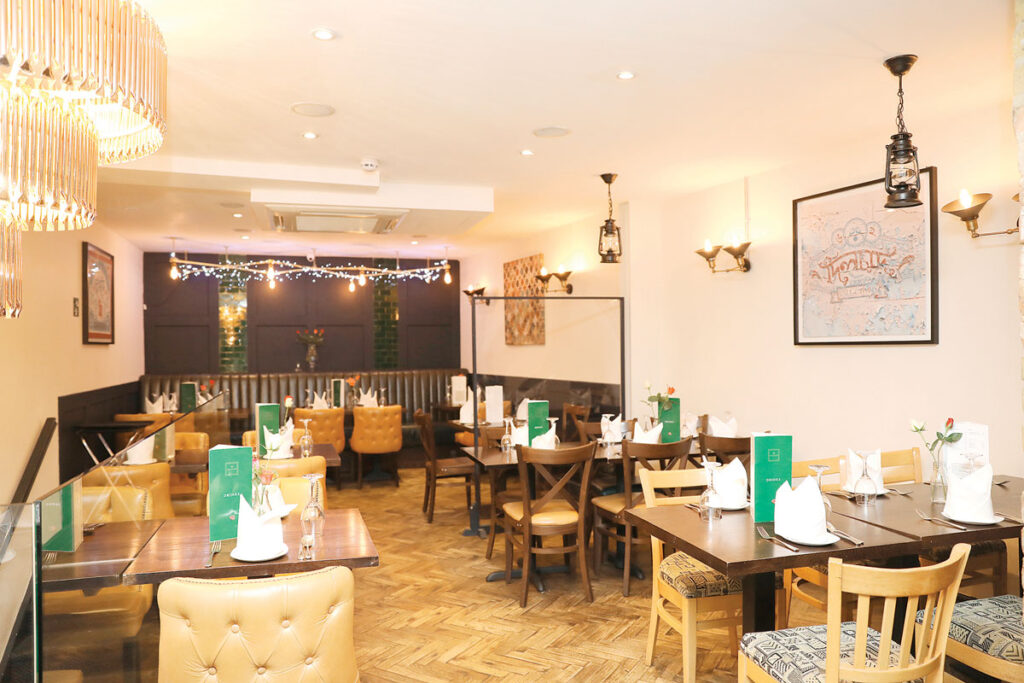
“A demand for less ‘heavy’ lunches meant we introduced some lighter dishes such as Chicken Tikka Caesar Salad and Kuchumber Salad. People are still asking for chicken Madras, Vindaloo and Korma so we’ve kept these on the menu. And with more competition in the surrounding area, we need to keep up with the latest trends. We are developing a street food menu in the new year, and more tapas-style sharing dishes.”
Dilchad also has a range of signature dishes, including Katmandu, a fiery curry of chicken or lamb, with Naga chilli blended with fresh green chillies and Scotch bonnets. It’s also expanded its vegan offering, although as Moshiur points out, many Indian dishes are vegan.
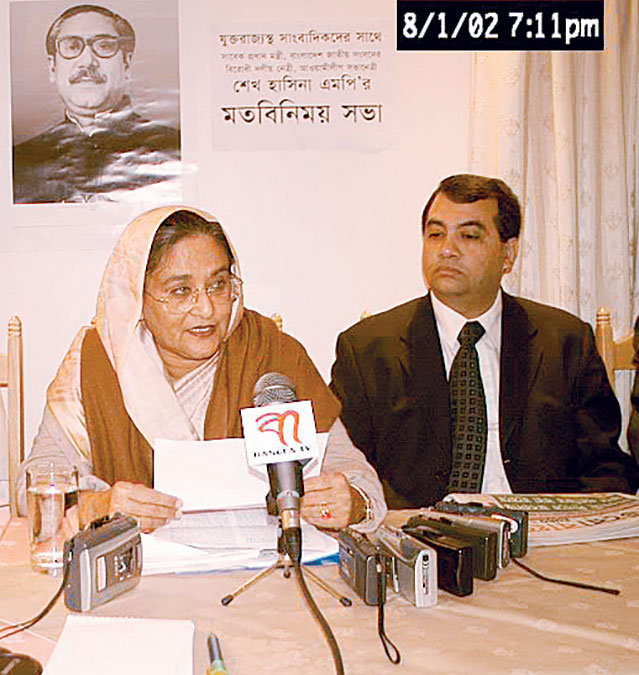
Staying on top of tech
To keep moving with the times, Dilchad has worked with several development chefs and sought advice from friends in Bangladesh on new or popular food trends. Ensuring that dishes are ‘instagrammable’ is also important. In previous years, Dilchad would advertise in publications such The Evening Standard but Moshiur says this is no longer cost effective.
“Now, it’s all about social media marketing, with Facebook and Instagram and we are getting another company to look at how we can best use TikTok – it’s a great platform for showcasing food,” he says.”
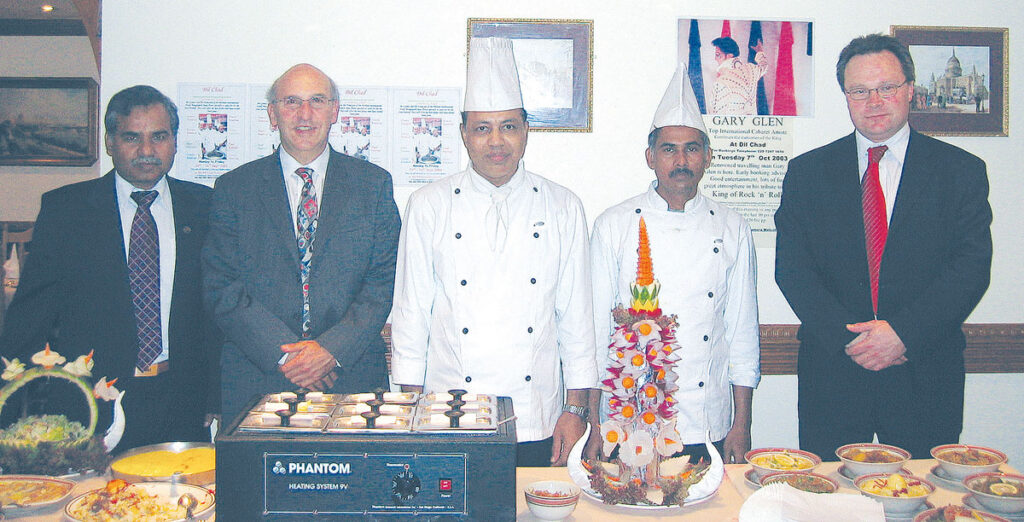
Over the years, the lunchtime trade has greatly reduced, reflected in the fact that many of the shops along the nearby Wentworth Street have long since shut their doors. And during the pandemic, the restaurant was closed as there was little demand for takeaways in the surrounding area, particularly with the majority of offices shut. Dilchad used the time wisely, developing different menus and since reopening in May this year, it has tried to ramp up its takeaway offer and says it is doing a lot more of these than it used to.
Its main focus though is on the dine-in trade. To continue to attract a new generation of diners, it’s important to invest in technology.
“I am looking at developing an online ordering facility and online booking system, customers order from these but the established ones now take a massive cut,” says Moshiur. “It’s important to keep up to speed with channels such as Instagram too – the food has to look stunning and it can be challenging to make a curry look attractive. We’ve got a popular thali dish that lends itself well to this.”
In 2022, Dilchad is marking its 60th anniversary, and plans to celebrate in style with a week-long series of events. The restaurant hopes to stage a charity event, offering menus priced as they would have been in the 1960s, featuring dishes from that era too.
For the present time however, Dilchad’s challenges are in keeping with many other restaurants.
“Christmas time should be one of our busiest periods, but in light of the new Covid-19 variant, we’ve had lots of cancellations for bigger groups,” says Moshiur. “We’ve also seen people dining out more in the earlier part of the week – Wednesdays and Thursdays are very busy but Fridays less so. The going is very tough but I am hopeful we will see a turning point.”
Dilchad Restaurant
24 Widegate St, London E1 7HP, Tel. 020 7247 9614
www.dilchad.com

BRITISH CURRY FESTIVAL RETURNING TO DHAKA AFTER A DECADE
To celebrate the culinary diversity of the United Kingdom, the British Curry Festival will be returning to Dhaka, Bangladesh, to showcase the Best of British Cuisine in a top five-star luxury hotel setting.
The event will occur at the InterContinental Dhaka from 16-29 October 2022, with highly-acclaimed Michelin-star chef experts in the British culinary scene joining the British Curry Festival team. He will showcase the ‘Best of British Regional Dishes’ while fellow chefs will focus on recreating favourite curry dishes from Britain’s high streets.
The choice of Dhaka marks a ‘homecoming’ for the festival – the first such one was held at the same venue in 2002 when the hotel was called Dhaka Sheraton, and it has been nearly 12 years since the festival last took place in Dhaka.
Curry Life developed the concept of the British Curry Festival in the UK, where curry is one of the most popular foods, considered akin to the national cuisine. The event aims to showcase British curry as a brand with the help of talented curry chefs and leading hotels and support from the British High Commission/Embassy and sponsors. The festival plays a vital role in Curry Life magazine’s aim to promote British Bangladeshi chefs’ artistic and culinary skills, highlighting their leading role in ensuring curry’s popularity in the UK and beyond.
The event is truly international. Over the last decade, it has promoted the best British curry in continents as diverse as Europe and Asia, helping further chefs’ careers by showcasing British curry cuisine on a global stage.
Festival founder and editor of Curry Life magazine Syed Belal Ahmed said: “We are delighted to bring the British Curry Festival back to its roots in Dhaka where the curry trail started. People of Bangladeshi origin are historically known to have invented Britain’s most loved national dish of ‘Chicken Tikka Masala.’
“Hopefully, this festival will create the opportunity not only to showcase the best of British curry cuisine but also help our curry chefs bring fresh ideas to their menus here in the UK. by working alongside the culinary masters of Bangladesh.”
The event was previously known as the British Fusion Food Festival, later adapted to Taste of Britain Curry Festival and most recently the British Curry Festival.
Curry is famous all over the world and originated from the Indian sub-continent. The spice trade between the Indian sub-continent and Europe is often cited as the primary catalyst for curry houses or Indian restaurants in every major European city, including London. Curry now outsells most European foods, with the curry industry reportedly making a turnover of several billion pounds sterling annually.
It is estimated that there are 12,000 curry houses in Britain, and over 90% of them are run and operated by people of Bangladeshi origin.
A high profile delegation of restaurateurs will be travelling along with a VIP from the UK with the festival team. For those who wish to join this exciting culinary journey, please call or message Syed Ahmed on 07956 439458 for further details.
Read more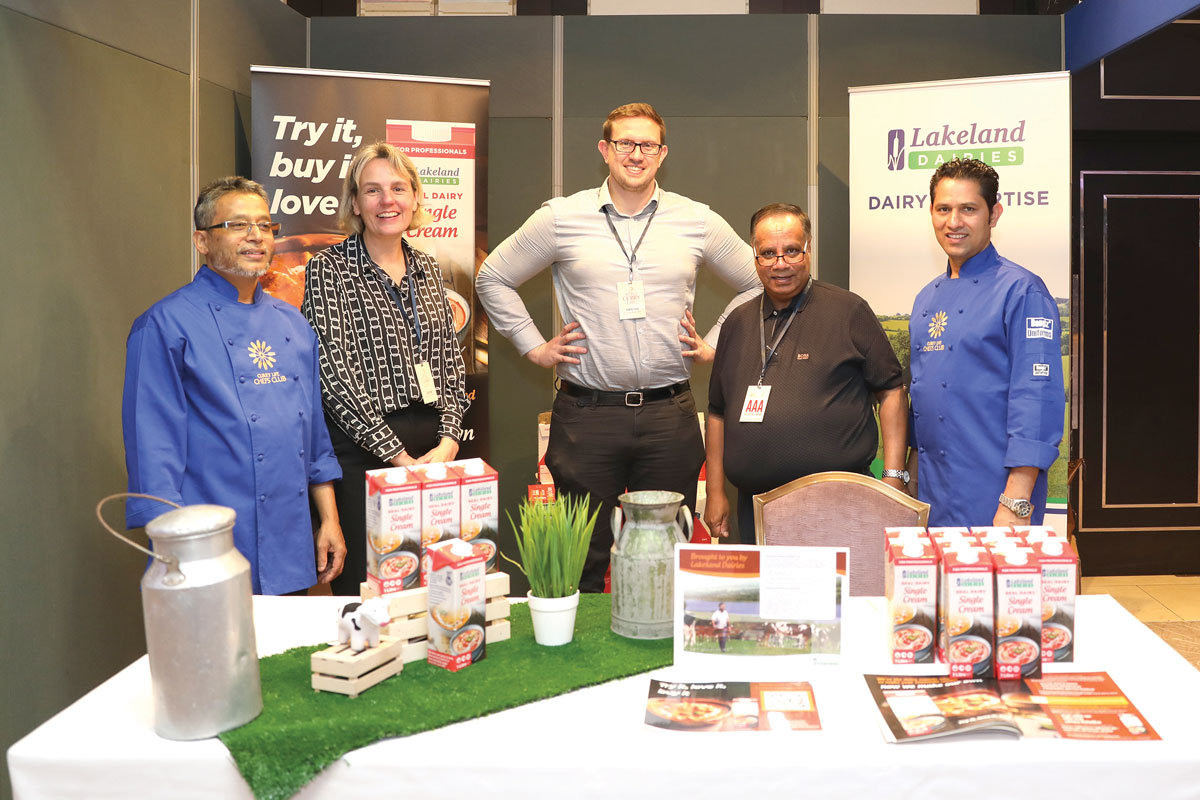
World Curry Expo showcases top suppliers
The World Curry Expo, held on 10 October at the Royal Lancaster London, featured a range of suppliers to the culinary industry, including Just Eat, Cobra Beer, Work Permit Cloud, Unisoft, Sardar Food Products, Novopay, Super Tuff Menus, Mr Printers, Lakeland Dairies, AB Pest Control and Mahi & Co. Visitors were also able to find out more about the Curry Life Chefs Club from a dedicated stand.
The Expo was held in the afternoon, prior to the Curry Life Awards 2021 and Gala Dinner, with many attending the Expo over the course of the day. There were also plenty of networking opportunities and feedback from the event has been extremely positive, with attendees praising the variety of sectors exhibiting.
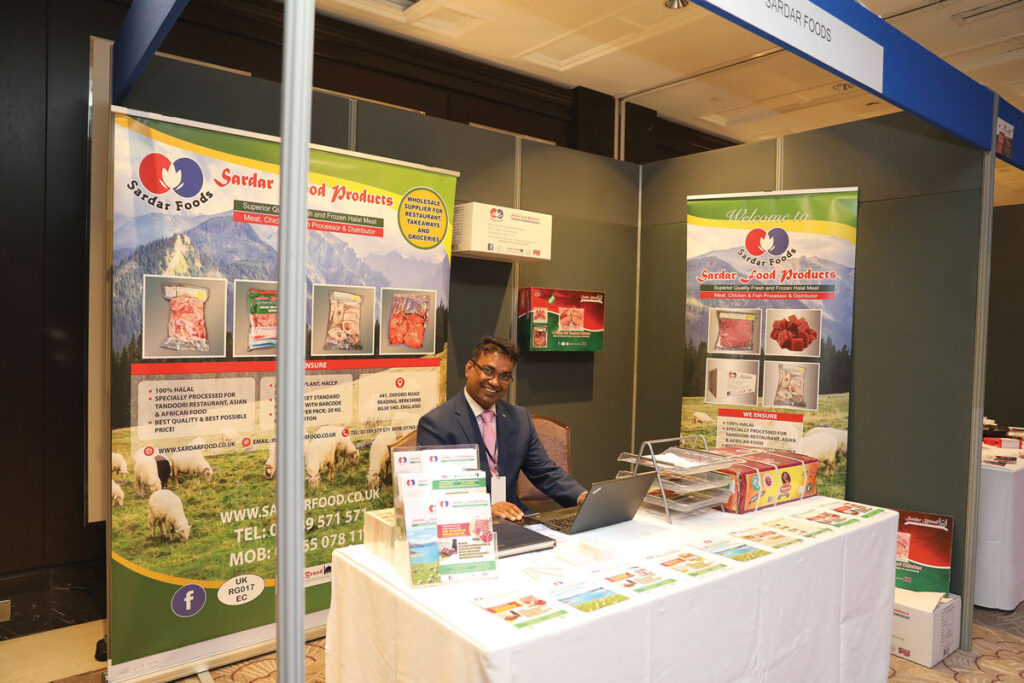
“The range of suppliers was excellent and it was great to be able to talk to brands such as Just Eat and Lakeland Dairies, alongside businesses that offer accountancy, payment, printing and legal support,“ said Abdul Rahman of Taste of Nawab.
“It was a very productive afternoon, having many valuable suppliers in one place made it easy to seek out information and to build relationships,” said Abdul Ahad of City Spice.

“Once again, it was a fantastic event and was better than last year. We had lots of people visiting and wanting to know more about our products. For me, I know this will turn into a sale. I am happy”, said stall holder Mahfuz Sardar of Sardar foods.
This was the third Curry Life Expo to be held, with the previous one having taken place in 2019, as the event was postponed in 2020 due to the Covid-19 pandemic.
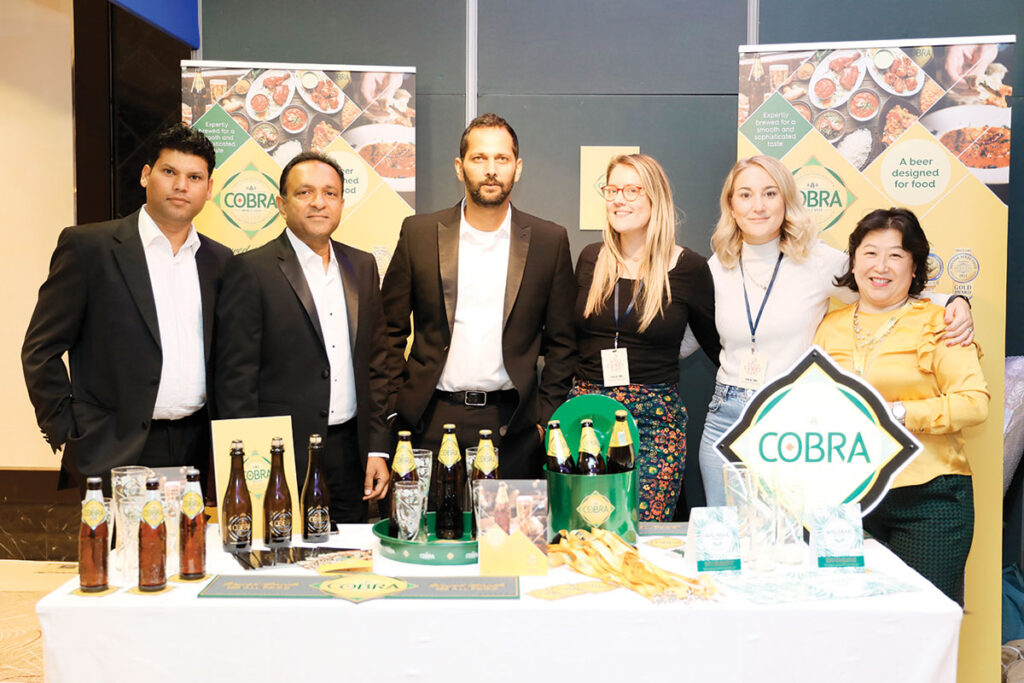
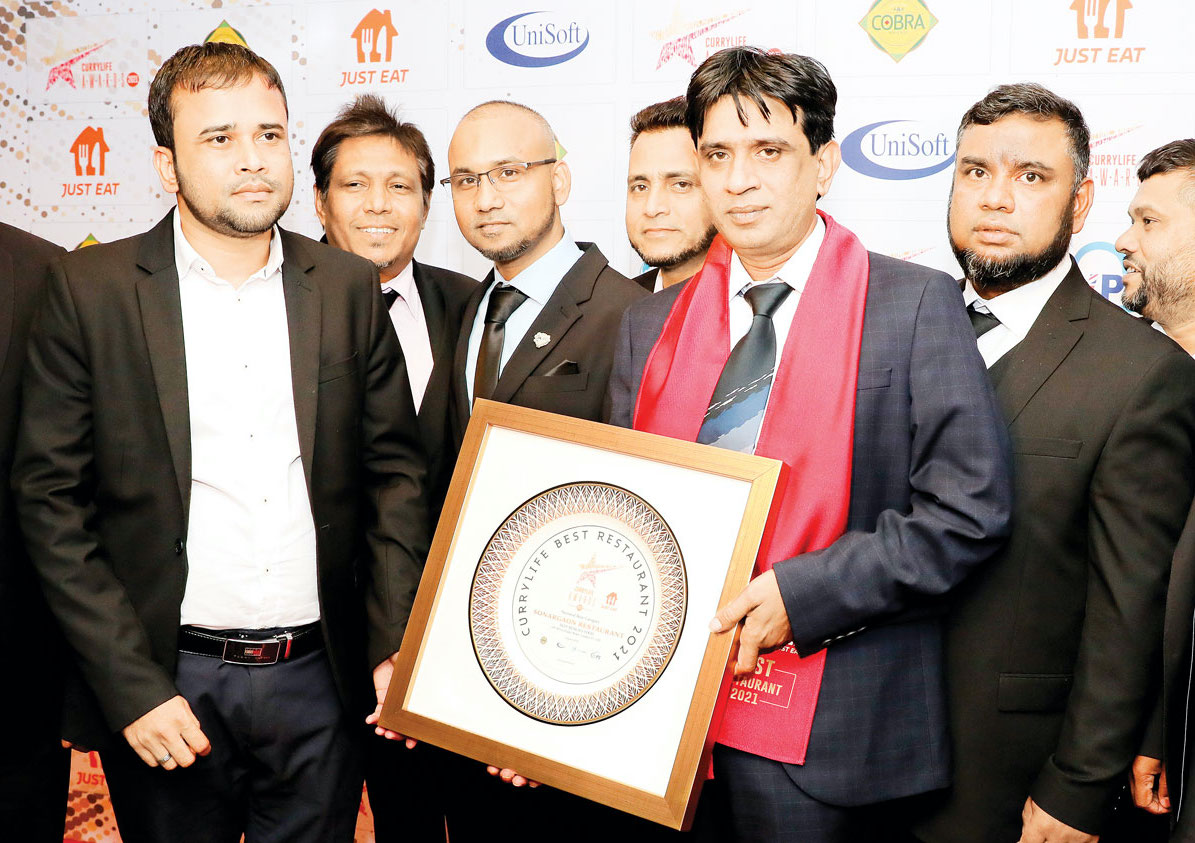
No Place Like Home
Whitechapel’s Sonargaon delivers authentic Bangladeshi food buffet-style and provides a place to chat, giving a new meaning to comfort eating
‘Adda’, which roughly means gossip or a bit of conversation, is a favourite pastime among Bengalis. And you’ll see plenty of this at Sonargaon restaurant in Whitechapel, east London. Opened in 2017, on the former site of another Indian establishment, the restaurant has quickly built a reputation as a place where you can happily hangout and catch up with friends and family. With its location by Whitechapel market, there’s a steady footfall from people shopping and stopping for a bite to eat.
The restaurant, open from morning through to the night, from 9am until 11pm, is owned by TufazzalAlam, Babul Ahmed Chowdhury and Misba B S Chowdhury. All three are friends who had already worked together at another restaurant (they also have other business interests including a grocery store, which is located next door to the restaurant). Their aim is to bring a ‘quality Bangladeshi food experience and to ensure this is delivered with perfection.’ The restaurant is run buffet-style, helping to reinforce the idea of bringing communities together and sharing good conversation over food.
The dishes, focusing heavily on Bengali fare, are an obvious draw, with 30 items on offer at any one time, usually 25 savoury and five sweet options. You’ll find authentic dishes such as paratha with beef bhuna and beef liver curry – popular with Bengalis at breakfast time, and Kala Bhuna (on the bone), a fiery dish of fried meat, onion and shatkora (a bitter citrus fruit), cooked with the chef’s own spices. There are also a range of fish dishes, including Mrigal, a fish curry on the bone (using fish flown in from Bangladesh), a choice of homemade chutneys and sweet snacks that are made fresh daily. Buffet concepts often bring to mind food that may not be the freshest, but dishes at Sonargaon are cooked fresh daily, with many ingredients sourced from the grocer’s next door.
“The Bengali community likes to gossip – everyone gets to meet and come here for food and some ‘adda’,” says Alam, who first came to the UK in 2004. “It’s become a place for the local community to gather. There are not many restaurants in this area that have such a strong focus on Bengali dishes. Many of the dishes we serve are influenced by those you would find in Sylhet, in north-eastern Bangladesh.” Ninety percent of Bangladeshi origin people in the United Kingdom are from that region.
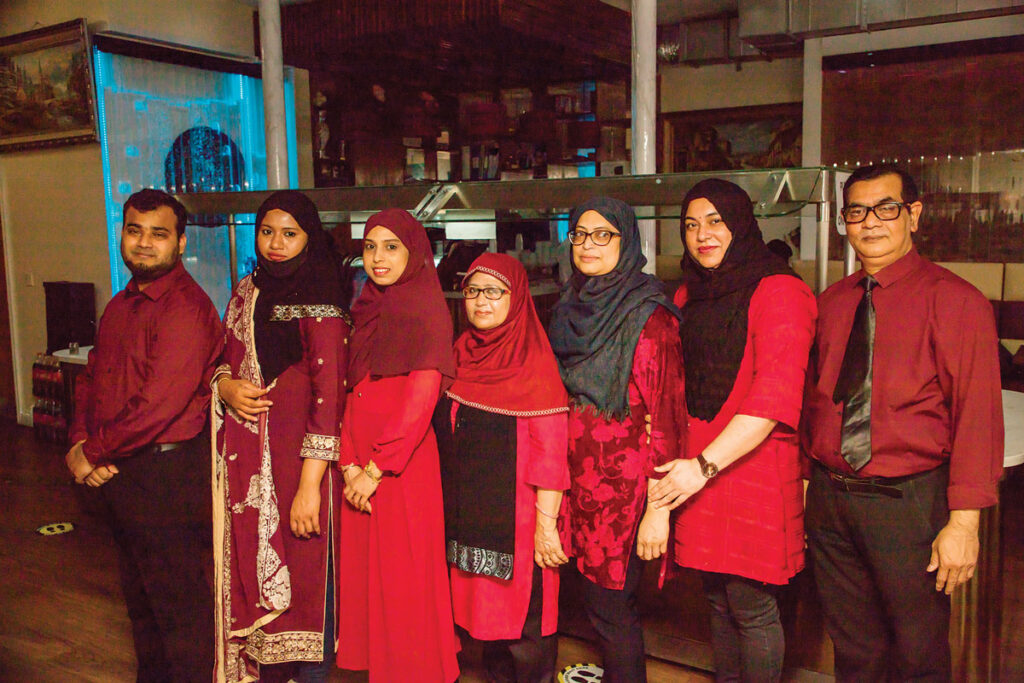
Even though the restaurant has yet to celebrate five years in business, it has already built up a loyal customer base; as Alam explains, those who visit Sonargaon feel right at home. The restaurant was also named ‘Best Bengali Food Restaurant 2021’ at the recent Curry Life Awards 2021. People are welcome to stay for a quick snack or for a more substantial meal, while an upstairs space can host events for around 100 or the entire restaurant can be used for events for up to 200 people. An outside counter also does a brisk takeaway business and was used extensively over the various lockdowns at the height of the Covid-19 pandemic. With such space on offer, unsurprisingly Sonargaon is a popular venue choice for weddings and perhaps even more so post-pandemic, with its ability to host sizeable, rather than mass gatherings. It’s also in demand as a caterer for external events.
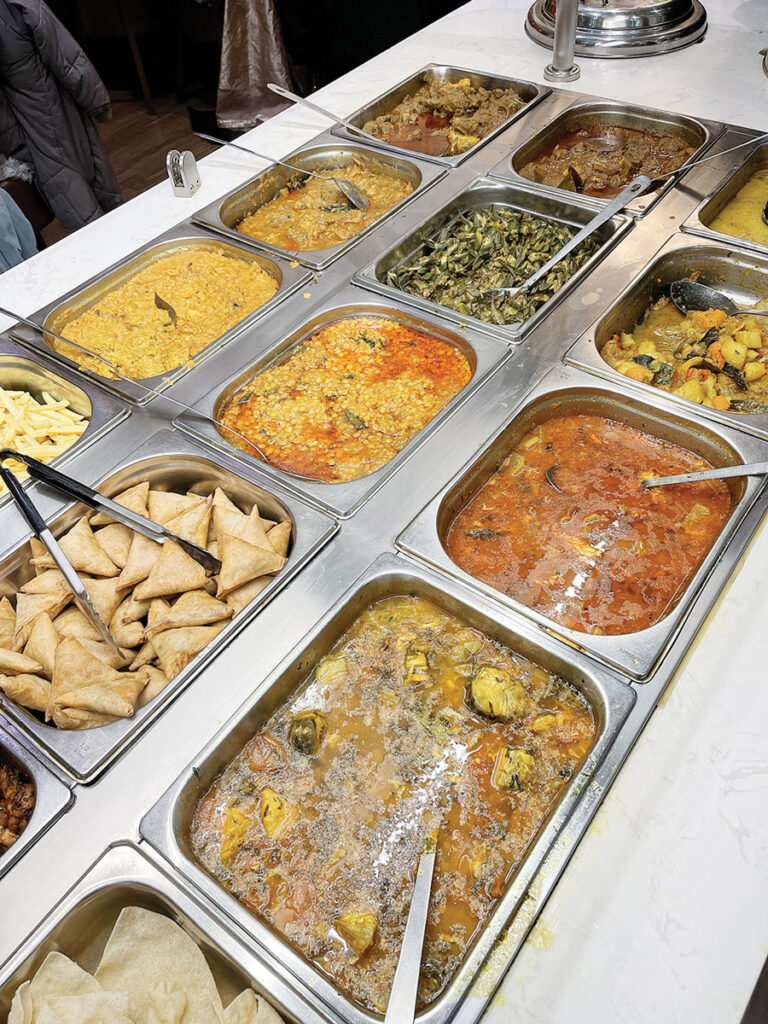
Around 95% of customers are Bengali, and they are not only from the surrounding areas, but from much further afield too, while the restaurant is also popular with westerners who would like to try some authentic dishes. Alam also made the unusual move of ensuring that all of his front-of-house staff are women, which lends a welcoming, caring vibe to an Indian restaurant, an environment that is often male-dominated. There are three main chefs and 10 waiters who work different shift patterns and Alam has known his employees for many years. This means that staff turnover at the restaurant is kept to a minimum and Sonargaon is not plagued by staffing issues to the extent that many other restaurants are in the current business climate.
“Our female front of house staff is a strong team and staffing isn’t such a big challenge for us,” says Alam. “We have more issues with the lack of parking available, as so many people make the effort to travel to eat here.”
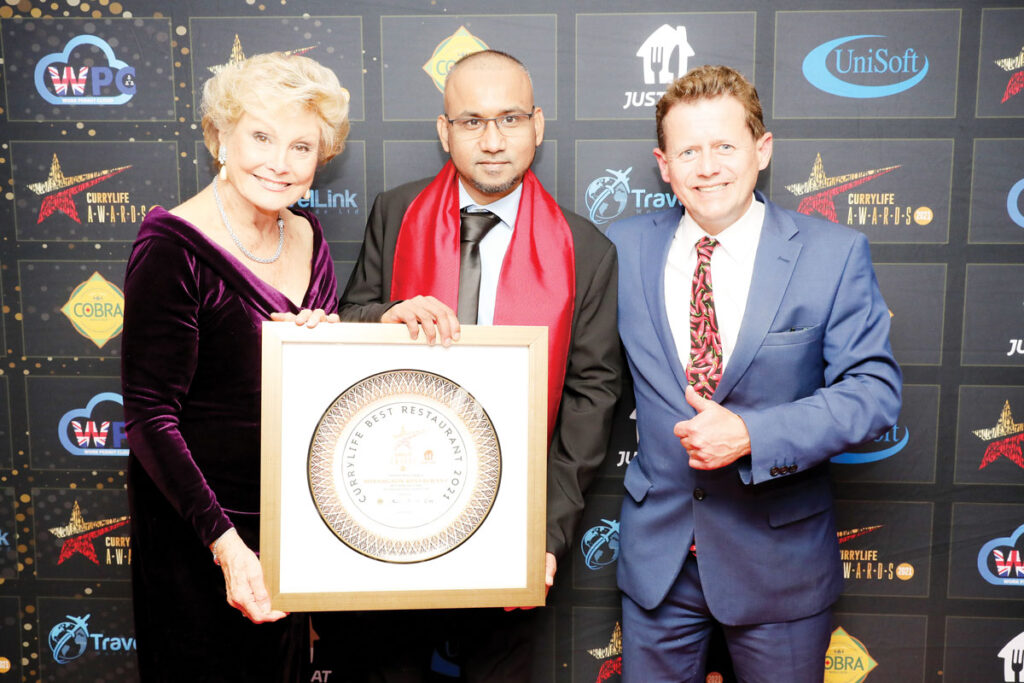
Access to the restaurant may not be a problem for much longer, with a new station set to open in Whitechapel in 2022 – part of the Elizabeth Line, while a new town hall will be unveiled, also in 2022, on the site of the former Royal London Hospital. It’s a clear sign that the area is changing rapidly and that passing trade is set to grow. To capitalise on the potential for a growing lunch trade, Alam is looking to launch a ‘grab and go’ concept for the outside counter/takeaway side. He is also looking to expand the Sonargaon concept and is toying with the idea of opening a second restaurant.
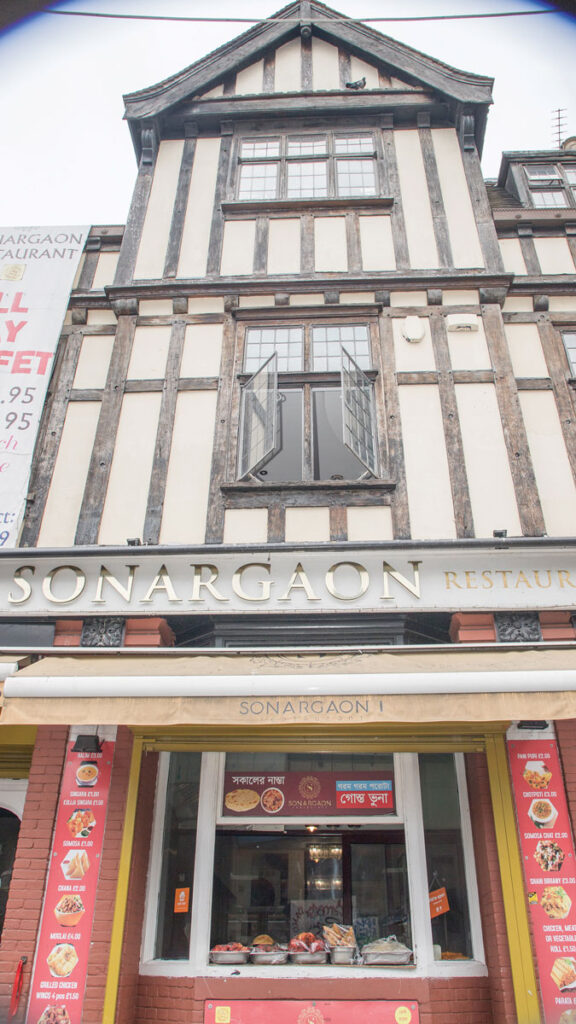
“We want to encourage others in the UK to come to this place and try Bengali food to get inspired and be inspired,” he says “It’s a great place for small meetings, people can enjoy a traditional breakfast or a late night dinner in groups. We offer tradition and value for money too.” The name Sonargaon is taken from the popular tourist destination in Bangladesh, which was the old capital of Bengal, roughly about 40km from the capital Dhaka. It translates as ‘golden village’ or ‘heritage village’. Alam and his partners have certainly spotted a golden opportunity and made their own restaurant a special place among Whitechapel’s Bengali community. Their next challenge will be taking the concept to a wider audience.
Read more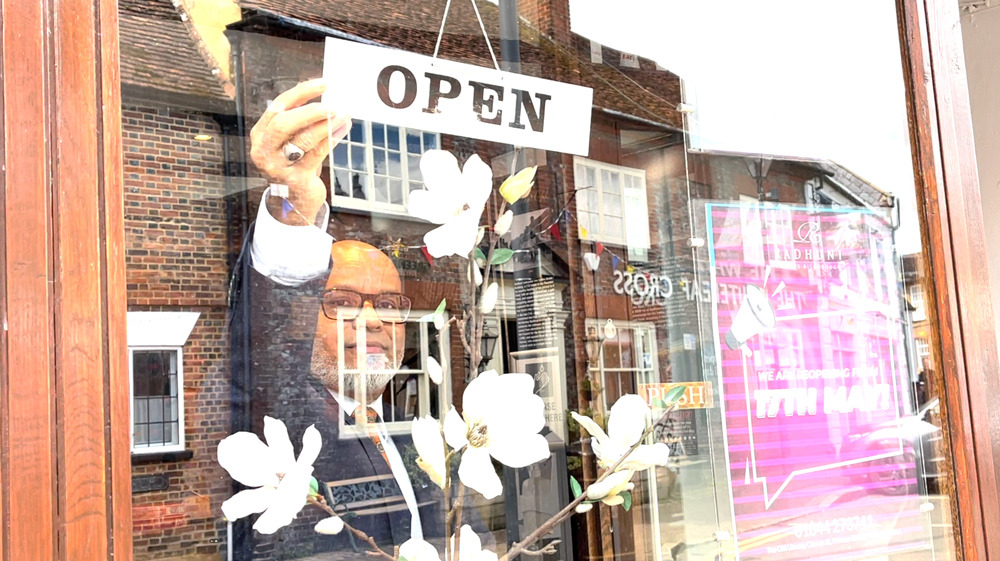
RESTAURANT REOPENING SURVIVAL GUIDE
Now that the hospitality industry isfree to open once again and the pandemic seems to be under control with the vaccination programme on track, Curry Life has a few tips for restaurant owners regarding reopening successfully.
we have gathered this advice in recent weeks through our many conversations with veteran restaurateurs, hospitality experts, and business strategists. We hope you find these tips helpful!
Prioritise your regulars
While your regulars have likely visited you for takeaway throughout the pandemic, they’ll have missed table service. Ordering a takeaway is great, but your regular customers will be keen to come back and enjoy sit-down dining once again. Therefore, make sure your local, frequent customers are welcomed back and treated like old family members.
While we fully recommend doing what you can to attract new business, it’s your regulars that will keep the bills paid. At this point in time, they are the customers you need to impress the most. Show them what they’ve been missing. Many of them will have craved your cooking in the past few months, so make sure it was worth the wait! Reward their loyalty in any way you can, but most of all, just make sure they have a great experience. If you’ve seen them regularly during the pandemic, then thank them for their support.

Don’t abandon takeaways
Takeaway food may have been your primary source of income over the past twelve months, and chances are you’re keen to leave it behind and get back to being a dine-in restaurant. You may also have sold a lot of takeaway food before the pandemic, meaning it will always form part of your strategy. Tempting as it might be to focus more on restaurant dining, we’d caution against abandoning takeaway or easing off the throttle fully.
We understand your desire to jump back into table service now that restaurants are open again, but it’s a good idea to keep your takeaway processes active. Lots of people are still wary of the virus and will still be ordering takeaway food for a while longer. They may not yet be comfortable returning to restaurants yet.
Covid-19 is still a threat, and nobody can rule out another lockdown. This is why restaurants need to be able to go right back to a takeaway-only model if the need arises. We sincerely hope this doesn’t happen, but few things in life are certain. Keep your takeaway infrastructure in place, just in case.
Review your menu
You may have made amendments to your menu during the pandemic. You may have omitted some items due to increased supplier costs or difficulties procuring certain ingredients as a result of recent trade complications. Be it due to Brexit, the pandemic, or a certain ship being stuck in a certain canal; it’s been a complicated time for businesses which import goods.
But some of these issues are being resolved and this creates more options for restaurant owners. Work out what you can comfortably bring back. It may be your whole menu or just certain dishes. Now may be a good time to shake things up and make the changes you want going forward. You could even advertise your ‘New Menu’ to get your customers excited.
Evaluate your suppliers and your staff training
Speaking of suppliers, take time to evaluate them and see which ones are worth keeping, now that the industry is coming back to life. There may be cheaper alternatives, or it may be worth paying more if there is a price increase. The price of many suppliers skyrocketed during the pandemic, and they may lose customers if this continues in the long-term. Make sure you do what’s right for you and your business.
Health and safety concerns are now at the forefront of customer’s minds. Hygiene and cleanliness have always been essential to the restaurant trade, even before the pandemic, but now these concerns have increased in importance due to the existence of Covid-19.
This means restaurant owners and managers need to ensure their staff are taking health and safety guidelines as seriously as possible. There is no room for error or a relaxed approach. Staff must adhere to the rules if they are to work in this sector.
It’s your responsibility as a restaurant owner to ensure your team is fully trained and aware of what the guidelines are. It’s also worth encouraging your staff to get vaccinated. This could help ensure Covid stays out of the restaurant, keeping you, your team, and your customers safe.
Keep up to date with guidelines and reassess your marketing
As restrictions ease, the guidelines are changing rapidly. However, the government’s roadmap could change as new strains of Covid are identified. There are likely to be regional guidelines too, depending on where you are in the UK.
Stay up to date with current affairs and keep an eye on what’s going on in your area. While restrictions are relaxing, they could return at a moment’s notice. It’s likely that summer 2021 will not be the complete end of Covid-19, so stay vigilant. Know what you can and cannot do legally, then act accordingly.
Now is the time to tell the world that you’re back in business. There are many different ways to do this; you could consider traditional advertising, like leaflet drops. Or you could take advantage of digital and social media with targeted ads. If you can afford it, then you could hire a marketing executive or an outside agency to help you – but only if that works for you and your restaurant.
Even if you don’t pay for it, we’d advise using social media to let your customers know that you’re back. Share some enticing pictures of your meals and let them know your opening hours. Remember, it’s free to use a Facebook, Instagram, or Twitter page, so don’t be afraid to try these out.
Plan for a gradual reopening
Just because you can reopen fully doesn’t mean you have to, at least not right away. If you’re more comfortable opening in stages, draw up a plan for this. It could mean only opening on weekends or weekdays or simply opening a few days a week and seeing how it goes.
Go at your pace. You may still be building back up to a full reopening. There may still be staffing, menu, or other logistical concerns to consider. Therefore, do whatever works for you, and don’t be pressured into doing anything you’re not ready to do.
Read more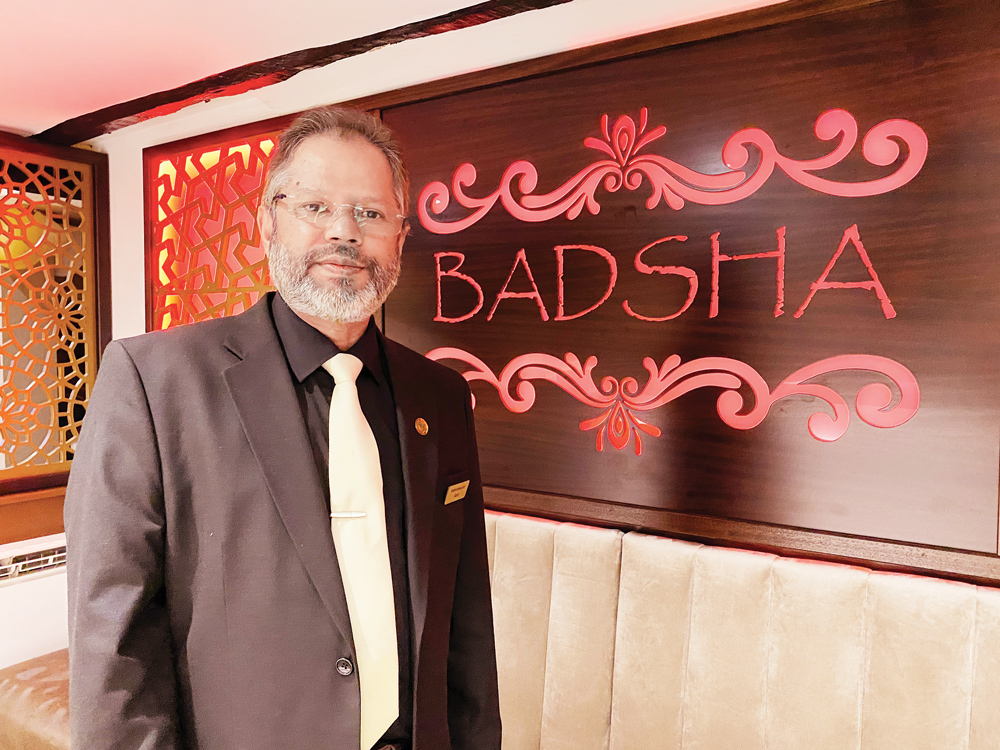
A triumph of tastes & talent
By Cosmo Brockway
DEEP IN THE KENT COUNTRYSIDE, surrounded by oast houses and hop fields, lies the pretty village of Tenterden. Known as the ‘Jewel of the Weald’ the tranquil market town has a huge amount to offer a visitor, from quaint antique shops to scenic rides on the Kent & East Sussex Railway. Tenterden High Street is one of its most charming features, a tree-lined, wide boulevard of clapboard and Georgian shops and houses, it is as British as apple pie and custard and is a fine place to wander down on a summer day.
At the very end of the picturesque High Street is one of Tenterden’s gems, the locally-renowned Badsha. Having been established 26 years ago by restaurateur and businessman, Abul Kalam Azad Suton, the Indian restaurant has gone from strength to strength and has a devoted following, both locally and nationwide. The pause of lockdown has given Suton the time and space needed to refurbish his dining room and it has recently reopened with ‘a new spring in its step’. Suton has been reinvigorated by this unforeseen opportunity to step back and reassess his business direction, and like many other small businesses, he has taken the chance to move into the next season with a renewed sense of purpose and vitality, despite the many obstacles faced in the last fifteen months.
A hearty welcome
We walk into Badsha’s newly unveiled dining room on a chilly evening (despite it being late May) and are immediately swept up in the warmth of our welcome. Suton treats each and every restaurant guest as though they are walking into his own hearth and there is an intimacy and charm that is the hallmark of an experienced and genuine host. “I am known across this region as one of the first curry houses in this part of the world,” he says as we sit down at one of the socially distanced tables in the beautifully decorated dining room.
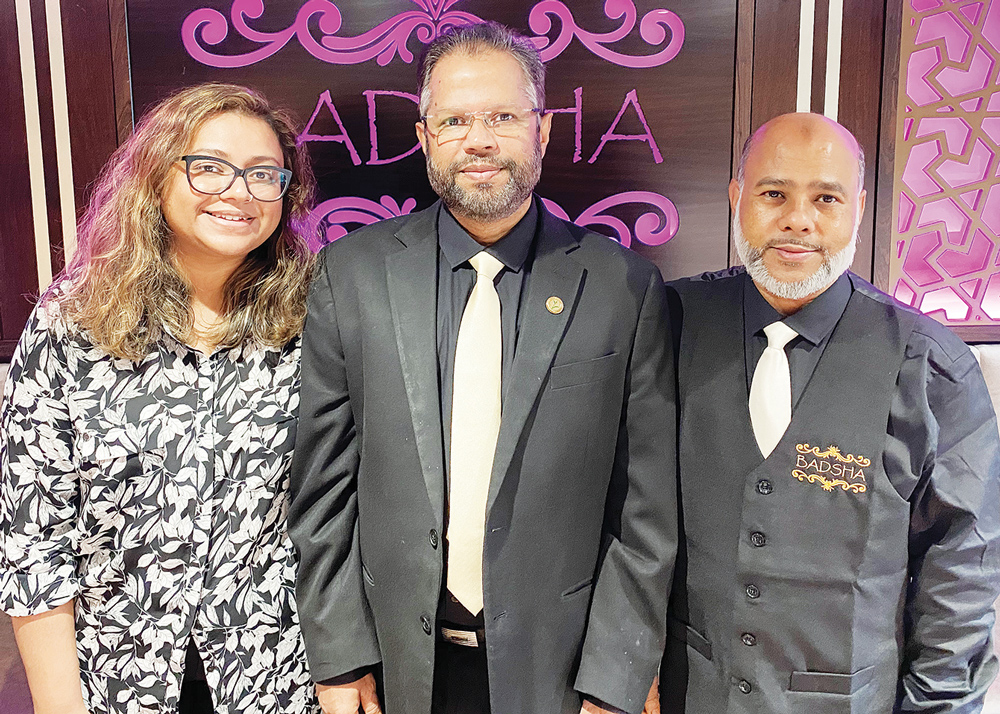
“Family generations have grown up with me and I have known many of my adult diners from when they were little children teasing me”, he says.
Such longevity would be appreciated in this very traditional part of the British countryside and Suton is proud of his respected place in the local community.
The figure sitting across from me is a far cry from the young man who arrived from a village in Sylhet, in the northern part of Bangladesh, in 1983 with little to his name. However, Suton’s work ethic and determination ensured that by the end of the following year he had his first business up and running, Shapla Tandoori in East Grinstead before moving on two years later, purchasing the 500-year-old building that is now Badsha. All this in addition to achieving his BA (Honours) from Anglia Ruskin University.
In 1995, he returned to his first perch in the UK to establish Azad Bangladeshi Cuisine. Suton’s son is now running Shapla in East Grinstead. Aside from these highlights, Suton’s proudest moment has been ‘setting up Britannia Spice in an old whisky bond in the foodie area of Leith in Edinburgh. It was a dream to create something like this and I have great partners involved.’
The innovative Britannia Spice has, since its founding in 1999, gone on to win critical acclaim and awards aplenty. Its regular diners are a who’s who of Edinburgh movers and shakers and Suton has continued his Midas touch with its enormous success.
Dinner across the generations
Back to Tenterden and dinner is being served, accompanied by Suton’s engaging commentary on the dishes and their inspirations. He is extremely pleased with his head chef and believes that Badsha will go from ‘strength to strength over the next year; people are hungrier than ever for new experiences and want to make the most of joyful gatherings that restaurants like ours offer’.
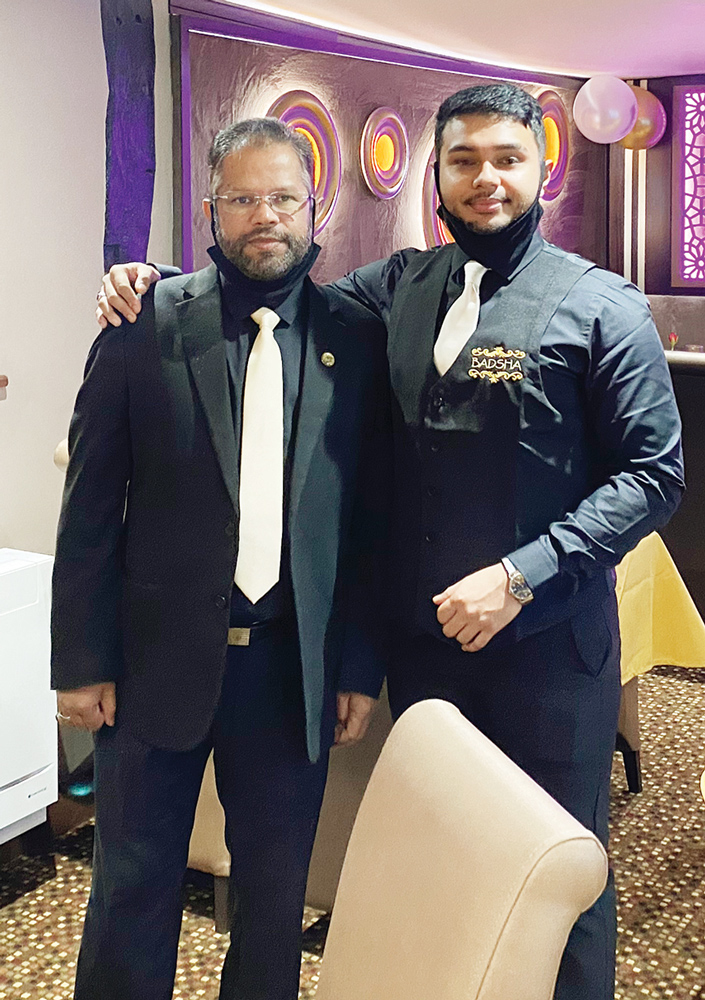
Our first course is a mixed platter of succulent, fiery red duck tikka, an unusual combination that wins on every level alongside glorious Mughal Lamb Chops, with a rosemary and mint marinade, and juicy chilli King Prawns sitting atop meltingly delicious chicken kebabs. There is nothing more satisfying than knowing at the first bite that you are in the hands of a chef with raw talent in his fingertips – and Badsha offered exactly that.
The main course was a fragrant trio of curries personally chosen by Suton to showcase what makes his restaurant such a destination for those in the know. A richly-masaled garlic-infused Roshni Chicken set the scene for a milder but velvety Chicken Reshmi Makhani, soaked in buttery cream and deeply comforting on a chilly evening. The third dish, Braised Lamb with Yoghurt, had all the smoky, refined quality of ancestral food handed down through the generations.
A journey through the nuanced flavours of the Subcontinent, with a perfectly pitched Bengali chord running it, this was the perfect dinner to welcome the joys of dining in a restaurant back to our lives. It was a fitting first meal after the long, desolate, takeaway-spiced restrictions of the year so far. Alas, we did not have any space for dessert but I am quite sure they would have lived up to the rest of our sparkling meal. I only hope the gentle residents of Tenterden know quite how privileged they are to have both Badsha and Suton in their midst – but I have a strong hunch they do.
A man of many talents
Suton is a man of many facets, while hospitality and the cuisines of his native Bangladesh are a passion, he also has many other accomplishments. Not least a book, titled Enlightened Noble Personality, detailing his life and achievements, with moving testimonies penned by the many figures whose lives he has touched. Having started as a freelance writer for various Bengali language newspapers on his arrival in the UK, Suton went on to co-found the weekly Sylheter Dak alongside some associates (including the editors of Curry Life) and write a very successful weekly column, SabinoyAroj. This was followed by the founding of British Bangladeshi News Agency and a large number of other writing projects, including several published books. A man of letters as well as business, Suton is very obviously passionate about engaging with his community in Britain and highlighting their culture, both within Bengali circles and to the outside world.
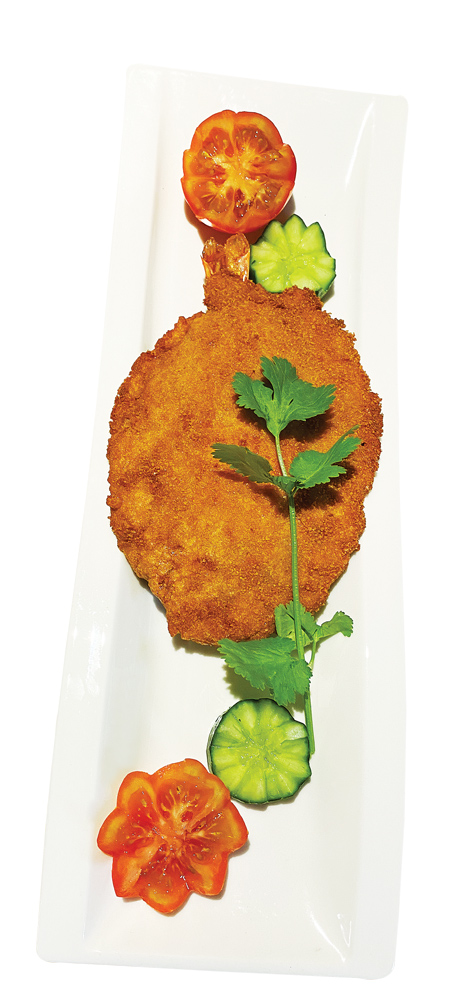
Suton was highly instrumental in the building of Gatwick Mosque (living with his family in nearby Crawley) and was the founder and secretary-general of Bangladeshi Islamic Community Association since 2000. Behind the scenes, he has also been involved in many local community initiatives. The epitome of marrying success with giving back to the community, his charitable achievements are numerous, and I enjoyed hearing about them over dinner. I am also surprised and impressed by the scale of his charitable concerns in his native Bangladesh. In addition to being a noted fundraiser for national disasters, Suton has established several foundations across Sylhet for those who are less fortunate. A son of Nabiganj Village and the descendant of landowners, Suton takes his responsibility to his old country very seriously. Each year, students in need of financial help benefit from his Educational Trust, Badsha Mia, created in remembrance of his father and the font of regular scholarships. He is also a noted donor of Dighalbak High School and cares deeply about the next generation of his region.
Suton is a renaissance man and everything he touches seems to turn to gold, but it is humility and gentle charisma that make Badsha the unique place that it is – and so much more than a provincial curry house. It is a hub of taste (both cultural and physical), community spirit, teamwork and, above all, joy. We leave with a sense of privilege at having been given a glimpse into the inner workings of a special dining destination – with a very special man at its helm. Long may it last.
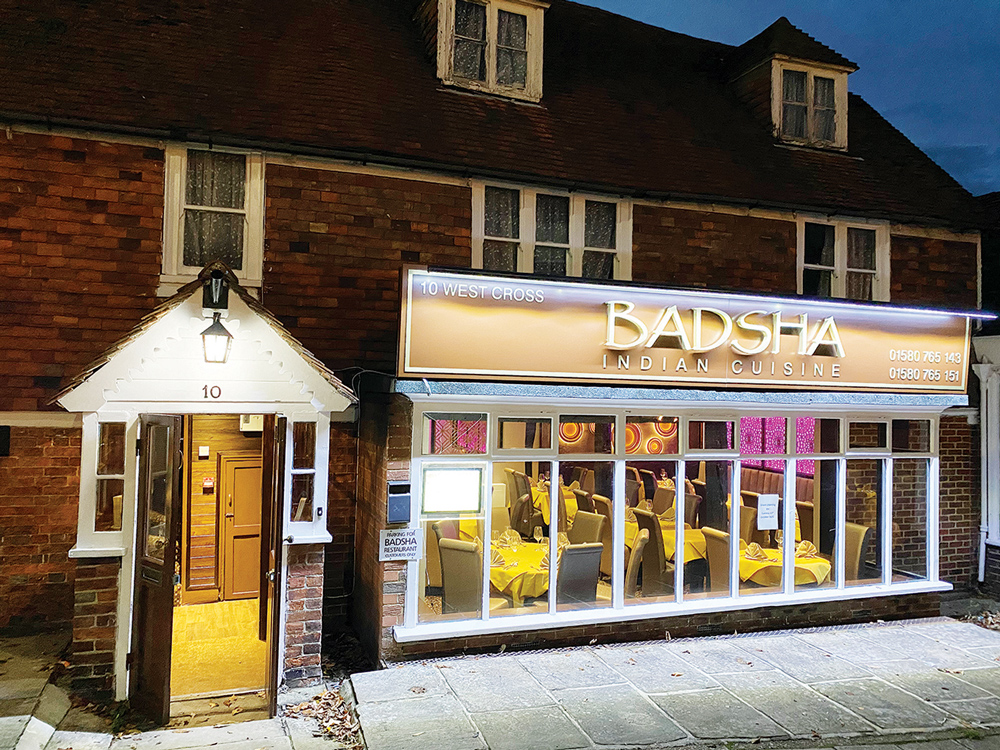
BADSHA INDIAN CUISINE
10 West Cross, Tenterden Kent, TN30 6JL. Tel: 01580 765143
www.badsharestaurant.co.uk
Read more
By the Water’s Edge
CURRY LIFE’S reporter Sam Smith caught up with Jangir Alam, proprietor of the stunning waterside restaurant Bombay Quay in the town of Northwich, to share his views on opening and running a successful large restaurant – and how to sustain one during a time of national crisis.
THE TOWN OF NORTHWICH is south of Warrington, which just so happens to feature Bombay Quay’s sister restaurant, Bombay 8. That restaurant featured in a previous issue of Curry Life from last year. The River Weaver runs directly through the centre of the town, making Northwich an ideal location to relax by the water’s edge and enjoy a good meal – especially now that the UK hospitality industry is coming out of hibernation.
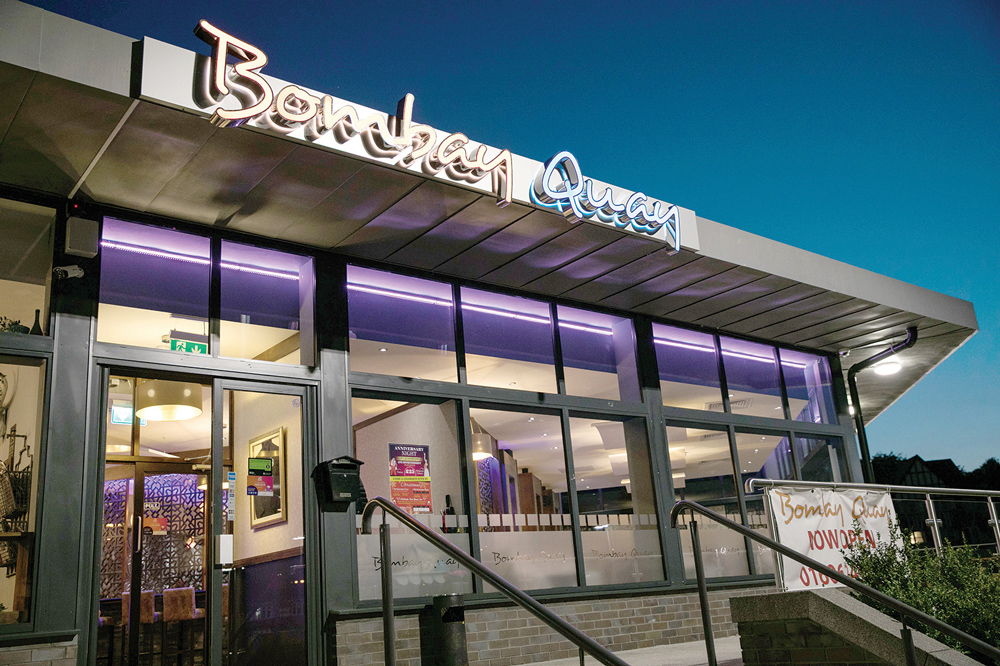
Alam believes Northwich is becoming increasingly cosmopolitan and that more people are settling in the town, so there is a demand for new and exciting places to visit and eat at. He points out a trend for fewer people leaving in the evening to go to nearby town centres; instead, they choose to stay in Northwich. All of which bodes well for his restaurant.
“More people have moved to the town, and more houses have been developed in recent years,” he says. “This has resulted in more restaurants too. We identified this trend and chose the town as our location for this reason. We named it Bombay Quay due to it being by the water and to connect to Bombay 8. We’re glad we did because our customers love it, there’s also nothing else like us nearby, so it was a worthwhile investment.”
Team approach
The restaurant opened in 2016 and around 80% of its customers are regulars, who bring new people who then return themselves and bring their friends.
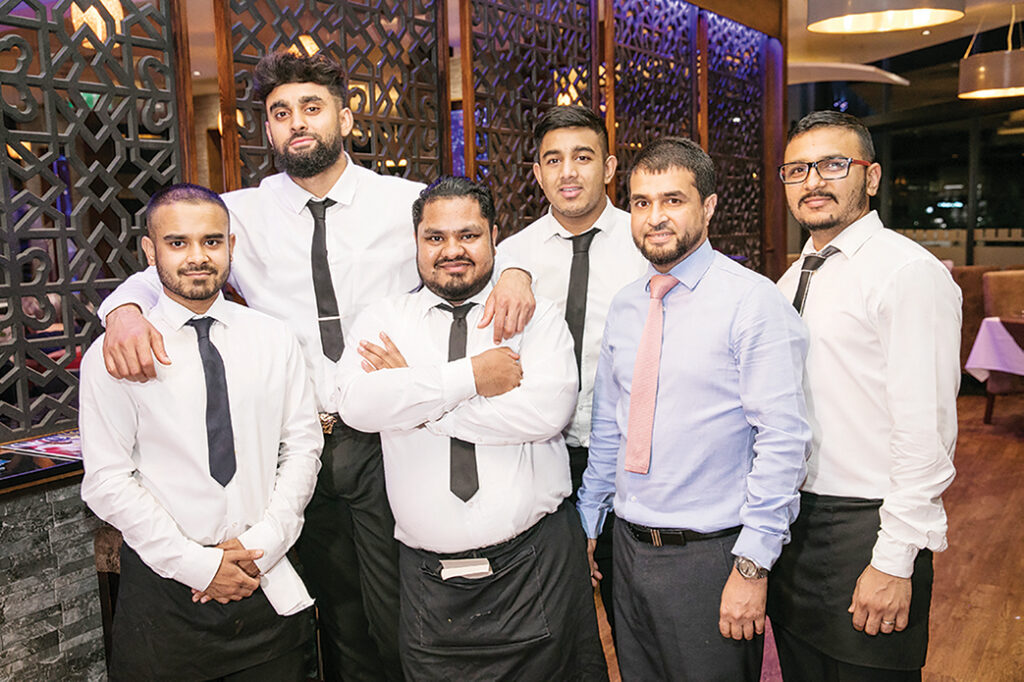
“We’ve done no traditional advertising since we’ve been open, with our popularity all about word of mouth. Our growth is down solely to our customers’ experience,” says Alam. “We have 12 chefs in the kitchen, most of whom have been here since day one. This has been great for consistency; our customers know what they like and what to expect each time they visit.”
One of Alam’s business partners from the front of house side has been stuck in Bangladesh since the pandemic started, however, leaving him and the other partners short-handed. The team has stayed in touch and continued to support one another, with everyone aiming to keep the restaurant operating at peak performance, even if they are separated for a period of time.
“It’s helpful to have a partner in each area of the restaurant, be it front of house or kitchen,” says Alam. “Each of us can then keep an eye on a different aspect of the business and take responsibility for it, and we all have a vested interest in its success. Other partners also know that the remaining areas of the restaurant are in good hands. We all want to succeed together. This method also helps us lead our individual teams from the front. You’re never taking instructions from a manager, but from one of the owners.”
Seizing opportunities
Alam himself started working in the restaurant trade at 14 years of age and gathered experience throughout school and college. He went on to study computer engineering at university, but upon leaving higher education, he decided to go back into hospitality, opening his first restaurant at the age of 21.
“My heart was in my course, I’m still very interested in technology, but I was always making five-year plans in my head, and opening a business was part of that”, he explains. “I think I was just more of an entrepreneur at heart. I have used these skills to improve the business though, be it through new digital innovations or software; I still love computers.”
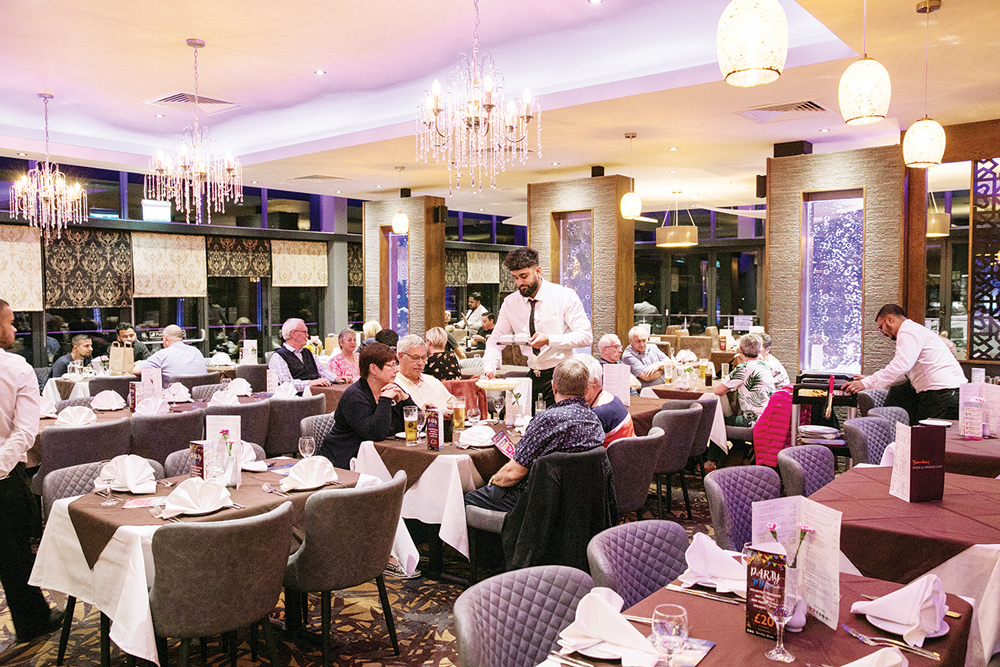
Running a restaurant during the Covid-19 pandemic presented a fair number of challenges, with everyone having to adapt to change.
“When the pandemic struck, we had 400 people coming in for Mother’s Day 2020,” recalls Alam. “I was driving to work listening to the news, and by the time I arrived, I started getting call after call asking to cancel reservations. This was just a few days before the first lockdown started.”
“We closed for a while just to gather our thoughts and make plans. Staff were asking what was going on, and for a while I didn’t know what to tell them. As their boss I needed to reassure them, but I didn’t know what was going to happen myself. Everything was so uncertain, and at first we only thought this was going to go on for a few weeks.”
Alam recalls leaving the restaurant the day it had to close. He says that as he put that key in the lock, he felt quite emotional, and he had no idea when he would be turning this key again.
“Or would I be passing the keys to someone else?,” he says. “It was an indescribable feeling, especially when you’ve worked so hard to build a business. I never thought I’d see the day when I’d need to close this place down. It was good to spend some time at home with the family when it all started, but in the back of my mind I needed to work out what was happening with the business.”
Changing times
When the business reopened, Alam decided this would be for only five days a week instead of seven, and with a minimal number of staff, who all worked together to share shifts to make sure that everyone got to be involved in some way. They liaised over Zoom and WhatsApp groups,with the team taking over responsibility for the rota. Alam says the partners were really impressed by how the team pulled together.
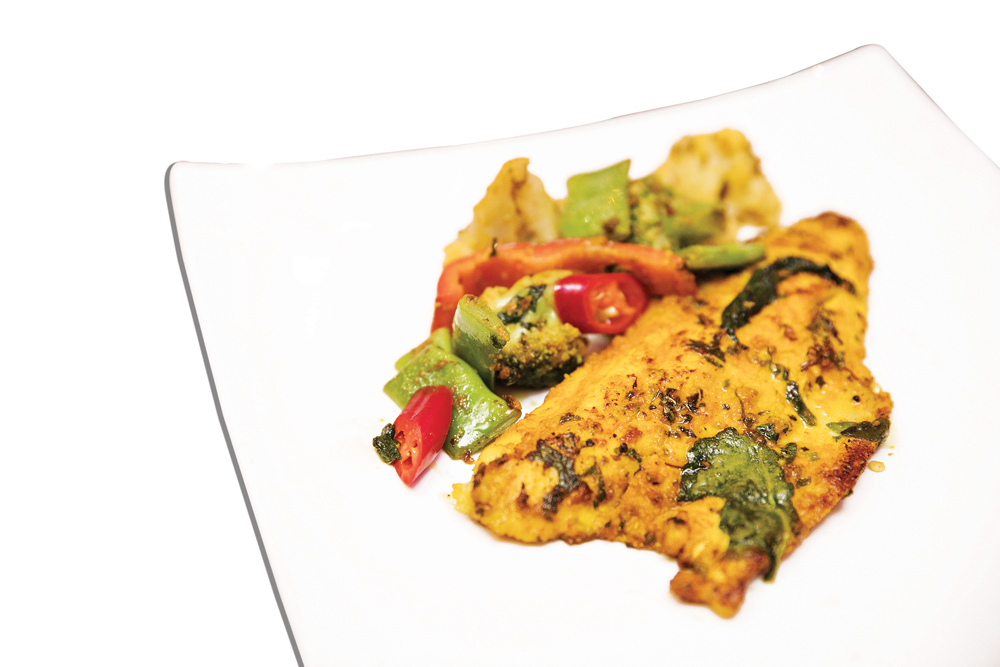
Once Bombay Quay reopened, Alam and the team had to work within the restrictions but also needed to ensure that as a business, it remained profitable.
“We’ve never done delivery, and have focused our efforts on takeaway only,” he says. “Once we opened, I was overwhelmed by the response from our regular customers. We created a one-way system for people to collect their food. People were queuing out into the car park and close to the street. We’d never seen anything like it before.”
To cope with the demand, the restaurant also had to turn off the phones and take orders in stages; this was to prevent the kitchen staff from being overwhelmed.
“Everyone liked the idea of enjoying a curry while things were so uncertain in the world, that may explain the demand. But this is when we realised we could get through this,” he says. “One challenge was paying the rent for the site. We have a fifteen-year lease here, and we did fall behind for a time. But I’m proud to say we’re totally debt-free now. We managed to open this May for table service with a clean slate, ready to start again.”
Keep your customers front of mind
So what advice would Alam give on running a restaurant during a time of crisis? Bombay Quay chose not to participate in the Government Eat Out to Help Out scheme, where diners received a 50% discount on food or non-alcoholic drinks when at a restaurant (up to a maximum of £10 discount per diner), every Monday, Tuesday and Wednesday between 3 and 31 August 2020.
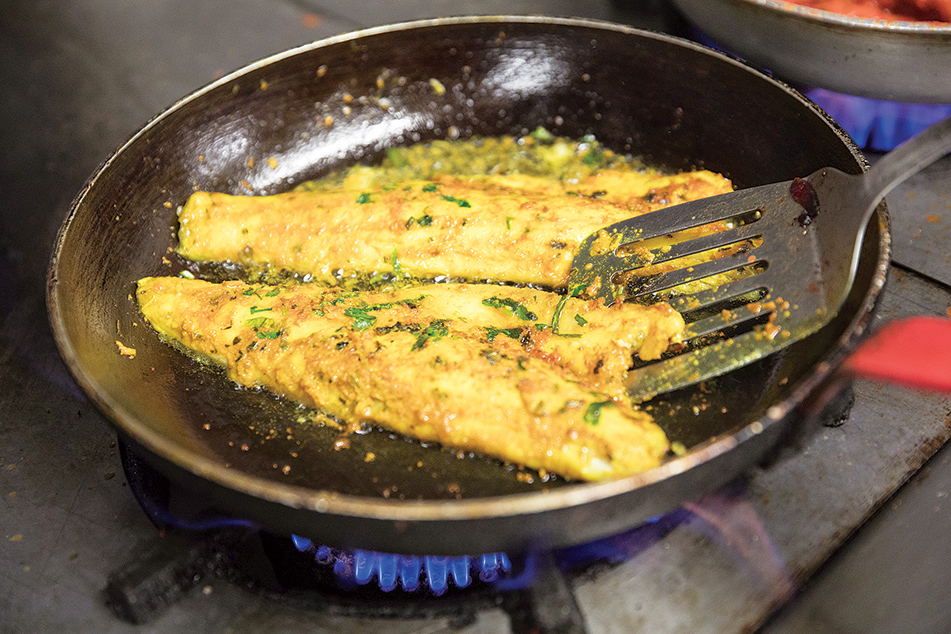
“We understood and appreciated the support from the government, but in my mind, we had already had that and Eat Out to Help Out risked alienating our regulars,” explains Alam. “We knew the restaurant would fill up anyway, but it would fill up with local customers who were just happy to be back. If we had done this half-price scheme, the restaurant would have filled up with new customers looking for a discount, and our regulars may have struggled to get a table. We’d rather make sure our regulars know they are always welcome.”
Bombay Quay didn’t limit its menu either and continued to serve its full range of dishes. While supplier costs did indeed increase during the pandemic, the Bombay Quay team didn’t feel the need to stop cooking anything from their menu. Alam organised his kitchen to make sure all dishes were available and could be cooked without difficulty.
“Chicken Tikka Masala has remained our most popular dish, but on top of that our house specials are also very popular,” he says. “In fact, we have a new dish on the menu, our Desi Lamb. This has a story behind it. At home I have meat on the bone and our chefs were making this lamb on the bone curry for our staff after their shifts ended.”
“It just had so much flavour, so I thought, why not add this to the menu?,” he explains. “The issue was these curries take a lot of time to prepare. So, we decided to cook it the day before and let the flavours really marinate overnight. This is now one of our most popular house specials.”
The dish is described on the menu as ‘This is what the boys eat!’. We tried this dish during our visit and were blown away by the flavours. The meat on the bone really did add another layer of taste. And despite the playful warning about how spicy the dish was in the description, we felt it had just enough heat to be enjoyed by any palate.
For Alam, there is one standout factor that helped Bombay Quay survive the pandemic, which he says applies to running a successful restaurant during any period of hardship.
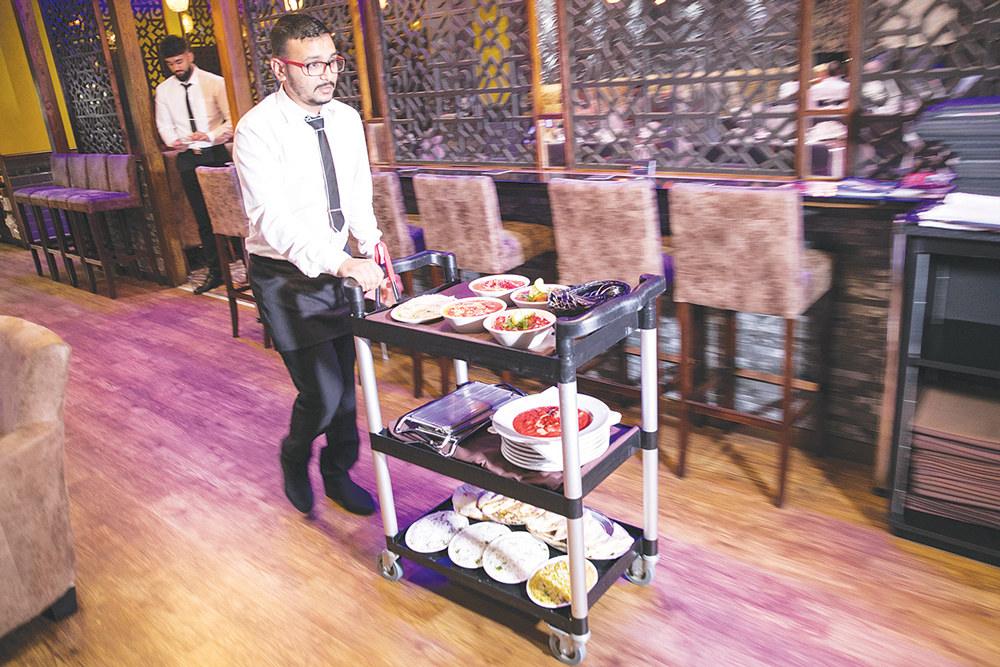
“I couldn’t have made it through without my staff,” he says. “Of course, you need to treat customers like they are a guest in your own home – at the end of the day, without them you don’t have a restaurant. But you also won’t have a business without your staff. I’m so thankful for my team, everyone was there for each other, and now we’re like a family. I would credit our survival and success to our staff.”
Alam is very much aware of the continuing need for the pandemic to be under control but he is looking to the future and making tentative plans for the coming months. He hopes to give back to the restaurant’s customers in some way and is also looking forward to planning a special celebration to tie in with the restaurant’s fifth birthday in October 2021.
Bombay Quay, Hayhurst quay, London Road, Northwich CW9 5EU
Tel: 01606 249911
Read more


